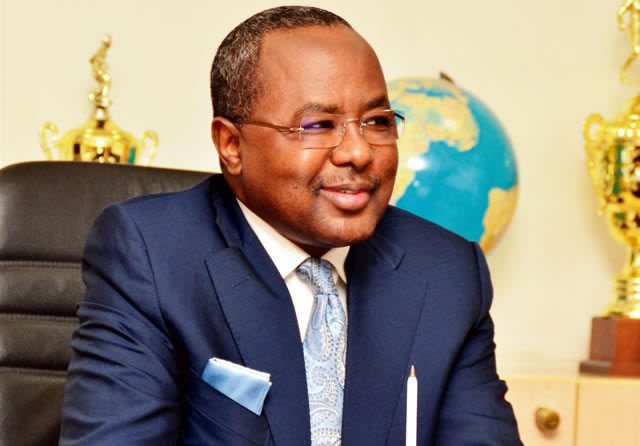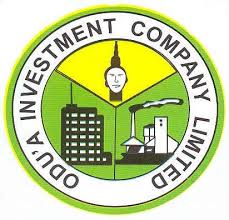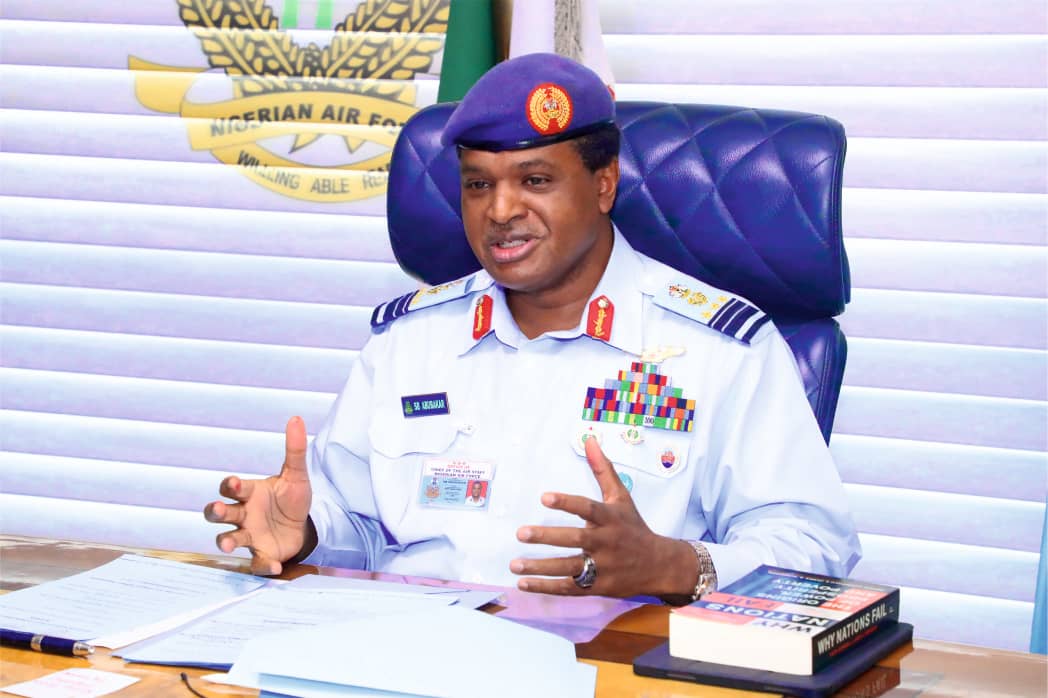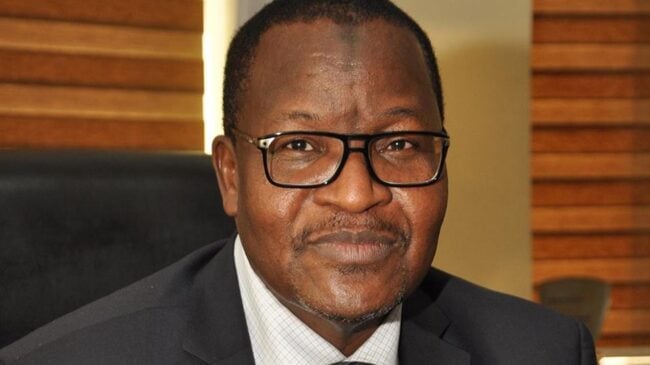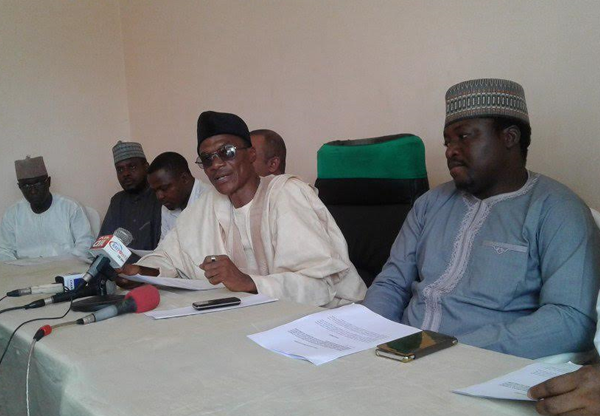Benjamin Franklin, Founding Father of USA stated: “If you would not be forgotten as soon as you are dead, either write something worth reading or do something worth writing.”
As the Director General of the Securities and Exchange Commission, the law provides that my tenure is for a period of five years. I was wrongfully suspended from office after two and a half years for doing what was right and saying the truth. Adam Shift, US Rep stated “Right Matters and Truth Matters otherwise we are lost” However, within the period I presided over the affairs of the SEC, some landmark achievements were recorded with the excellent support and commitment of Staff of SEC- internationally and domestically, and a few of them are as follows:
Electronic Dividend Mandate
Shareholders are entitled to the payment of their dividends when a company declares dividends but because dividends were sent in the form of paper (warrant) to shareholders through their postal addresses, most shareholders especially those that have small amounts, hardly collect their dividends which became stale after six months. Following the introduction of the electronic dividend mandate form by SEC which required shareholders to complete and submit to the registrars or their banks thereby enabling their banks to automatically credit their bank accounts with their dividends, a lot of small shareholders were able to collect their dividends including the previous ones.
Advertisement
This led to a total of 2.5 million investors out of an estimated 6 million being registered on the electronic dividend platform from 2015 to 2017. The policy achieved its aim of creating an automated platform capable of improving the process of dividend payments thus stemming the adverse drivers such as excessive cost outlays, fraud in some cases etc that flourished under the previous framework.
Regularisation of Multiple Accounts
As a strategy to address the issue of unclaimed dividends in the market associated to subscribers that use multiple names/accounts and in some cases with completely different names thus unable to claim their certificates and dividends which contributed in having huge unclaimed dividends and certificates, The SEC in 2017 created a window for harmonisation of such accounts as long as investors can prove they are the same people while for those whose names are completely different, they would forfeit both the shares and the dividend.
Advertisement
Dematerialization of Share Certificates
In April 1995, the Central Securities Clearing System (CSCS) was established to ensure electronic transfer (buying and selling) of shares but by 2015, 20 years after, only 40% of the shares with all registrars have been dematerialized. The SEC ensured that by January 2017 (2 years after), 97.4% dematerialization was achieved. The impact is that it has made buying and selling more efficient and faster (T+3) and significantly reduced fraud and market manipulation.
Direct Cash Settlement (DCS)
The introduction in 2017 of the DCS marked another achievement for the market, as it brought to an end the era of a settlement framework severely plagued by market infractions. As the DCS ensures improved efficiency by leveraging the resources of the CSCS as a channel for the direct remittance of net proceeds into respective bank accounts of investors thereby eliminating the previous practice where the Stock Broker will fail to remit the net proceeds or remit part to the investors which was quite rampant.
Advertisement
Establishing of Unclaimed Dividend Trust Fund
In order to ensure the N90billion unclaimed dividends being kept by registrars are utilized in the capital market and is made easy for shareholders to claim their dividends when they present proper identification, SEC spearheaded the sponsorship of a bill for the establishment of unclaimed dividend trust fund and in 2017, public hearing was held in which all stakeholders supported. The idea is to remove the statute of limitation on unclaimed dividends to enable shareholders claim their dividends in perpetuity.
Recapitalisation of Capital Market Operators (CMO) and Risk Based Supervision (RBS)
We introduced the RBS in the market and it is becoming the dominant and contemporary approach to regulatory supervision of financial institutions all over the world. It enables the regulator assess the level of risk in the CMO’s business operations based on its capital adequacy. The recapitalisation ensured some of the fringe players that do not have adequate capital base to operate in the market merged with some other operators while some stepped down their functions to either brokers or dealers only.
Advertisement
Data on Capital Market Operators
The need to have accurate data of all institutions and individuals that operate in the market is necessary. The work that was done enabled investors to access the SEC website and confirm if a particular company is registered and where there are infractions, the identity of the individual is easily ascertained and it made life easier for the operators as well because they can easily confirm the current status of their registration especially as it relates to infractions, incomplete documentation or filing etc.
Advertisement
Issuance of Sovereign Sukuk
The SEC, as part of its mandate to develop the market, came out with rules on Sukuk in order to create the necessary benchmark and yield curve for sub-nationals and corporates to create a new financing model for financing infrastructure and to change the impression that Sukuk is an Islamic instrument. SEC spearheaded an engagement with the Debt Management Office (DMO) in January 2016 towards the issuance of the maiden Sovereign Sukuk and designed the framework which was eventually adopted by the DMO. I believe the engagement by SEC, willingness from DMO and the work of the committee contributed a lot in the success story in the issuance of the first Sukuk by the Federal Government.
Advertisement
Encouraging Innovative Financing for Infrastructure
SEC facilitated the introduction of Green, Revenue and Infrastructure Bonds. The revenue bond is an alternative to the general obligation bond which the state issues and tied to the Federal Accounts Allocation Committee (FAAC) while the green bond is geared towards financing high impact environmental projects such as power, oil pollution etc. The infrastructure funds entail pooling the investor’s funds and apply it on infrastructure projects or assets like housing and other related assets. The SEC has thus provided the needed regulatory frame work for issuance of those instruments. Government can utilize the capital market through the issuance of other debts instruments such as education bond and health bond to address some of the critical issues in both the education and health sectors of our country.
Advertisement
Launching of Corporate Governance Score Card
We launched the corporate governance scorecard for public companies. It is a systematic and quantitative evaluation approach based on benchmarks established to achieve best practice which companies are expected to follow. It was launched on November 26th, 2015 and was the first of its kind in Africa to be launched. The scorecard is expected to provide a standardised, systematic framework from which regulators and investors can assess companies’ corporate governance standards.
Review of Certain Laws/Bills
SEC in 2016 set up a market wide committee comprising the regulators, self-regulatory institutions and operators with legal and operational experiences to review the following legal instruments: ISA, 2007, Companies and Allied Matters Act (CAMA), the Warehousing Bill, the Financial Reporting Counsel Act, the Trustees Investments Act, the Pension Reform Act and the Competition Bills. Three separate committees headed by Chief Anthony Idigbe (SAN), Mr. Abubakar Mahmoud (SAN) and Dr. Babatunde Ajibade (SAN) were set up and worked with other members on the review with utmost diligence and patriotism. These Acts/Bills have direct impact on the growth and development of the capital market. The report on ISA, 2007 was submitted to the former Senate President.
Funding of the Investments and Securities Tribunal (IST)
Funding has been a major issue of the tribunal. In 2014, SEC provided a grant that enabled the tribunal acquire office and vehicles but still had challenges in meeting its running cost. Therefore, in order to assist the tribunal, SEC in 2015 came up with rules and mandated, SEC, NSE and CSCS to remit 10% of their revenue to IST. This is aimed at complimenting what it gets from government and has assisted the tribunal greatly. The Ministry of Finance, IST and stakeholders should push for the inclusion of the tribunal in the Constitution and appeals from the tribunal should terminate at the Court of Appeal similar to the National Industrial Court of Nigeria.
Establishment of Capital Market Studies in Primary and Secondary Schools
SEC collaborated with the Nigerian Educational Research and Development Council (NERDC) under the Federal Ministry of Education to introduce the study of capital market in both primary and secondary schools and a memorandum of understanding was signed in 2016, and a lot of work was done in collaboration with market operators. This is aimed at encouraging young people at a young age to begin to study and appreciate the importance of finance and investments.
Establishment of Nigerian Capital Market Development Fund (NCMD)
The establishment of the NCMDF was part of the SEC’s strategic effort in deepening its statutory mandates of developing and building a robust capital market. The SEC incorporated NCMDF in 2016 as a limited liability company to provide funding for the Nigerian Capital Market development initiatives that are expected to spur growth of the market and the Nigerian economy. One of its first and very important intervention, was funding the forensic audit of OANDO Plc.
Establishment of Capital Market Implementation Council (CAMMIC)
The CAMMIC was set up in 2016 to serve as high level advocacy body towards actualizing the Capital Market Master Plan initiatives. It is the first of its kind in the history of the Nigerian Capital Market. The membership comprises of seasoned capital market operators and all the regulatory institutions in the financial system. The essence is to bring regulators and operators at the highest level to have a forum to discuss financial co-ordination and come up with policies that will be most beneficial to the system. Membership includes the chief executives of all the sector regulators in the Nigerian financial sector and some capital market operators.
Introduction of Arabic as an Official IOSCO Language
As Chairman of the African and Middle East Regional Committee (AMERC) countries of IOSCO, SEC pushed for the inclusion of Arabic as an official language of IOSCO. Before the inclusion of Arabic, only French, English, Spanish and Portuguese were recognized as official languages. The inclusion of Arabic in 2017 led to some Arab countries joining IOSCO and AMERC. This strengthened AMERC in the area of sharing knowledge and funding, and raised the profile of SEC Nigeria as a leader.
More Countries Joined AMERC/IOSCO
The following countries joined AMERC and IOSCO under the leadership of SEC Nigeria within (2015-2017): Kuwait, Cameroun, Iran, Namibia, Lebanon, Swaziland and Central African Economic Community (CEMAC). The larger the membership of AMERC the more it will have a strong voice in Growth and Emerging Markets Committee (GEM) and IOSCO.
Establishment of WASRA
The West African Securities Regulatory Associations (WASRA) was established in 2016. It is an association of regulatory institutions comprising Nigeria, Ghana and CREPMF (made up of: Mauritania, Senegal, Mali, Guinea, Ivory Coast, Burkina Faso, Benin Republic and Niger). The WASRA is meant to provide regulatory support in harmonizing rules and guidelines on various exchanges across the West African Region. The role of WASRA is more imperative now with the signing of the African Continental Free Trade Agreement (AfCFTA).
Reforms in the Asset Management Industry
The Asset Management is currently the most problematic sector in the Nigerian Capital Market with more than 70% of infractions in the market coming from that industry. SEC came up with a road map in 2016 for the sector and obtained strong support from the Funds Management Association of Nigeria (FMAN) which is an important partner. Some of the reforms we worked on was to have a custodian as a way of safeguarding the assets and also of having a sort of light regulations of reporting obligations to SEC by the fund managers of the private funds, and segregation of the funds from own assets to avoid co-mingling which we saw was very rampant and difficult for monitoring and investigation. The custodial services will thus apply to every fund whether or not they are Collective Investments Schemes (CIS).
Staff Medical
As the saying goes “health is wealth” however, prior to our assumption of duty, it was only some category of staff that had the approval to carry out the yearly annual medical check-up, but in recognition of the fact that sickness has nothing to do with position, age, sex etc, we therefore abolished the dichotomy on the annual medical check-up and granted approval for all staff to undergo the annual medical examination irrespective of their position in the organization.
This is also what prompted us to establish the Staff Clinic and purchase of a brand-new Ambulance to take care of health-related issues during working hours. This has never existed in the history of SEC. The clinic has a Nurse that comes in every working day while a medical Doctor comes every Wednesday.
Clearing of Backlog of Promotions (2015)
To motivate staff, we committed ourselves to ensuring that all issues concerning staff promotions were addressed in 2015 and we successfully cleared all promotion backlogs. We could not sustain this in 2016/2017, due to the financial situation in SEC and our believe that payment of staff entitlements was more of priority.
Canteen for Junior Staff
SEC, had never had a staff canteen despite the parity between the salary and allowances of junior staff with that of the senior staff, therefore junior staff were provided daily meal tickets to enable them have free lunch while senior staff could also access the canteen at a fee.
Head Hunt Exercise
In line with the recommendation of the capital market master plan for the Commission to strengthen its capacity, we recruited competent personnel to man strategic positions that have been vacant since their creation. We therefore embarked on a head hunt for the positions of: Heads of Strategy, Risk Management and Economic Research & Analysis Divisions. For the first time in the Commission’s history, we opened up the opportunity to both internal and external candidates to apply for the positions.
Staff Manual, Hand Book and Ethics Manual
The Staff Manual has been in operation for more than twenty (20) years and had therefore become outdated. This led to the review and approval of three (3) important documents, namely: Staff Manual, Staff Hand Book and Ethics Manual to properly guide the working relationship between the Commission and its staff. We bench marked with manuals from CBN, PENCOM and NDIC. The SEC thus has one of the most updated Staff, Handbook and Ethics Manual in the financial system but it is yet to be approved by the Board.
Conclusion
I am pleased with the appointment by President Muhammadu Buhari of Mr. Lamido Yuguda as the DG of SEC. Coming on board with a very rich and intimidating academic qualifications and wealth of experience at the CBN and Mr. Obisan Joseph bringing on board strong background in Asset Management, I have every confidence that they will effectively build on the modest achievements recorded in the implementation of the Capital Market Master Plan and restore the integrity of SEC as the apex regulatory institution in the Nigerian Capital Market. Posterity only judge and remember us on how we leave office and not how we get in. Michelle Obama, American Former First lady stated “We’ve got responsibility to live up to the legacy of those who came before us by doing all that we can to help those who come after us.”
Gwarzo, former DG of SEC, lives in Abuja.
Views expressed by contributors are strictly personal and not of TheCable.
Add a comment

